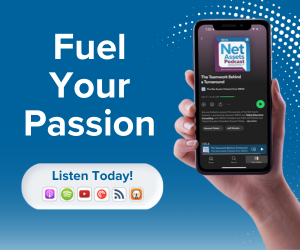
NBOA President and CEO
When allocating resources, independent school business leaders regularly consider how different investments may enhance the student experience and make families happy. But have you considered if our students can, in fact, learn to be happy? And if adults can learn the same?
I recently had the opportunity to hear a presentation on this topic by Jennifer Hamilton, a nationally certified school psychologist and licensed educational psychologist at the Nobles Greenough School outside of Boston. Her lecture was part of the annual gathering of the Association of Business Officers of Independent Schools (ABOIS), which I attended as a guest. Comprised of 30 business officers from day and boarding schools across the country, ABOIS predates NBOA; in fact, ABOIS members originated the idea for a national association serving business officers and business operations staff. The opportunity to join these thought leaders provides me with a bird’s eye view into your professional lives, the pain points you’re experiencing and the solutions you have identified to help overcome many of them.
At Nobles, where the ABOIS meeting was held, Hamilton offers an elective course class on happiness, which is based on a course initially developed at Yale. Yale professor Lorie Santos then modified the course the online instruction platform Coursera, where it is offered for free for both adults and teens. As the parent of a 17-year-old daughter — a high school junior, this course certainly piqued my interest, and you may be surprised to hear that this group of nationally renowned business officers were highly engaged too.
Students who are high academic performers, for example, may conflate being admitted to a prestigious college or university as the ultimate attainment of happiness but that is not always the case, as many students find.
To be clear, the problem of finding happiness is not kid’s stuff. The current backdrop of our students’ lives includes stark political divisions, rising racism and antisemitism, and continued threats of school violence, including the recent school shooting at one of our member schools, the Covenant School in Nashville. Together with the mental and emotional pressures of academic achievement, it is no wonder the Center for Disease Control and Prevention reported that in 2021 more than 40% of high school students were so sad or depressed that they “could not perform normal activities for as long as two weeks.” Additionally, and perhaps even more concerning, nearly 60% of high school girls reported that same year they felt “persistently sad or hopeless.”
Noble’s happiness course, titled “The Science of Wellbeing,” begins by redefining happiness for students. Students who are high academic performers, for example, may conflate being admitted to a prestigious college or university as the ultimate attainment of happiness but that is not always the case, as many students find. Rather, the course teaches students to define happiness for themselves. In short, happiness is unique to every individual.
The class at Nobles is not only popular but effective, students said in an interview with Kate Snow for NBC Nightly News last month. For example, one student opted to deliberately reduce his time on social media and used the gained time to practice meditation and get additional sleep. Another Nobles student now dedicates 15-20 minutes each night for a FaceTime chat with her sister. When asked whether or not students were happier after taking the class, the answer was a resounding yes! Due to these results, Nobles is requiring the class for all high school juniors next year. As for myself, I plan to take the Coursera class with my daughter.
It’s not often enough that I encounter a nugget like this, somewhat outside of our day-to-day administration of independent schools but fully imbued with optimism, hope and positivity. When I do, I feel compelled to lift it up and celebrate it. It’s why I love what I do, and I bet it’s why you love what you do as well. Thank you, ABOIS, for another opportunity to be in your company and thank you, Nobles, for putting the might of your academic independence behind the well-being of our students. Here’s to happiness!





